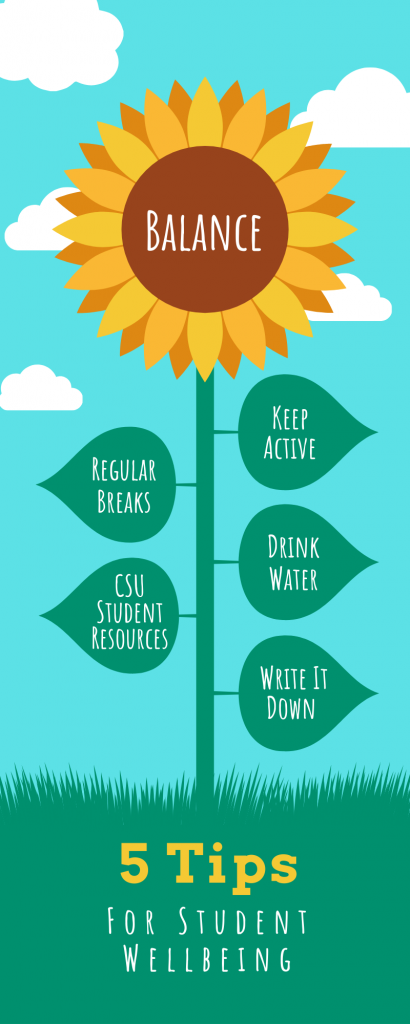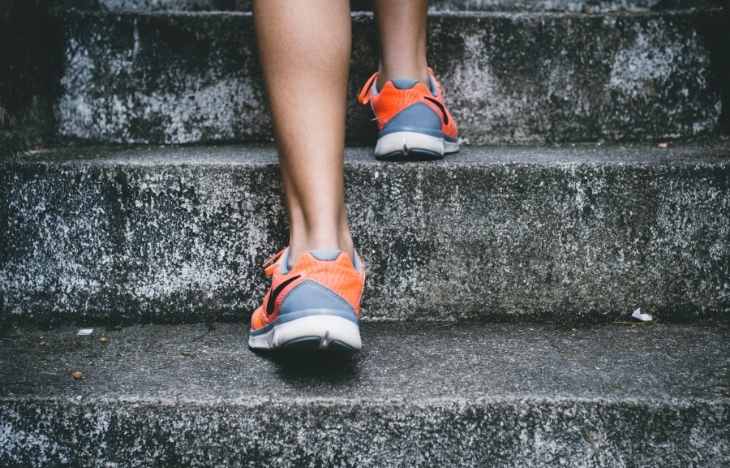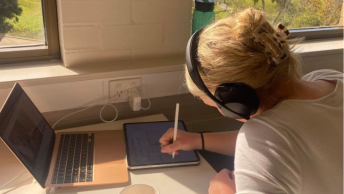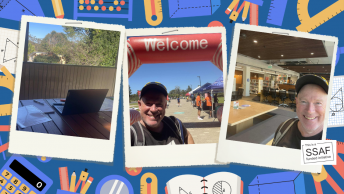This post is over three years old, the information may be outdated.
As we head back into session, work and study commitments begin to ramp up. Therefore, it is important to keep a balance between our workload and our wellbeing. To help you remain balanced, I have compiled my top 5 tips that I have regularly used throughout my study journey.
1. Write things down
I find that writing things down helps to plan and reduce stress. At the beginning of the day, or even the night before, write down what you need to get done for the day. Remember to include some time for yourself. You can then prioritise the biggest or most important tasks first. At the end of the day, take the time to write down three things you achieved, even if they seem trivial. It’s like giving yourself a little pat on the back when you need it.
Got a lot on your mind? Then try another favourite of mine. Take 5–10 minutes to ‘dump’ everything that is worrying you onto a piece of paper. Then decide what can be actioned now, what can be actioned later, and what you can let go of entirely. A simple, but powerful task to give you some ‘mental space’.
2. Take a break
Sitting for extended periods of time is not good for your health. I’m sure you know from your own experience just how fatigued you can feel when you have had your head in a book or have been staring at a computer for hours on end.
After every 50 minutes of study, you should aim to take 10 minutes break. This is something that I learned very early in my study days, thanks to a wise soul present at my orientation week. Perhaps some light stretching, deep breathing, getting outdoors? Whatever really. Just give yourself a meaningful break!
3. Keep hydrated
Water is vital to keep your body and mind performing optimally, so I always keep my bottle handy next to my computer whenever I am studying or working. According to the Australian Guidelines you should aim for between 2–3L per day. However, as you exercise, or in hot or dry conditions you will need more.
4. Keep active
In a perfect world, we would all have the time and resources to exercise most days of the week. However, we do not live in a perfect world and sometimes resources are stretched or simply unavailable. What you can do is set yourself some small daily goals to keep moving. Some favourites of mine include aiming for 10,000 steps per day regardless of my workload, a quick mobility flow or yoga, or if time is really limited you could use your 10-minute study breaks to chuck on some music and get dancing.
Consider downloading the CSU UniMoves app, which is free for all students and staff. There are workouts you can complete virtually anywhere. See my review article from earlier this year.
That brings me to my final tip…
5. Leverage your resources
The Charles Sturt Student Wellbeing pages have a large suite of resources that you can access including links to services to support your mental health, support for exam and study related stress, as well as specialised support for the diverse student population.
There are also practical guides available for you to download as well as health and lifestyle programs that you can be involved in throughout the year.

Article written by Stephen Hale-Worrall, studying a Diploma of Exercise Studies.










